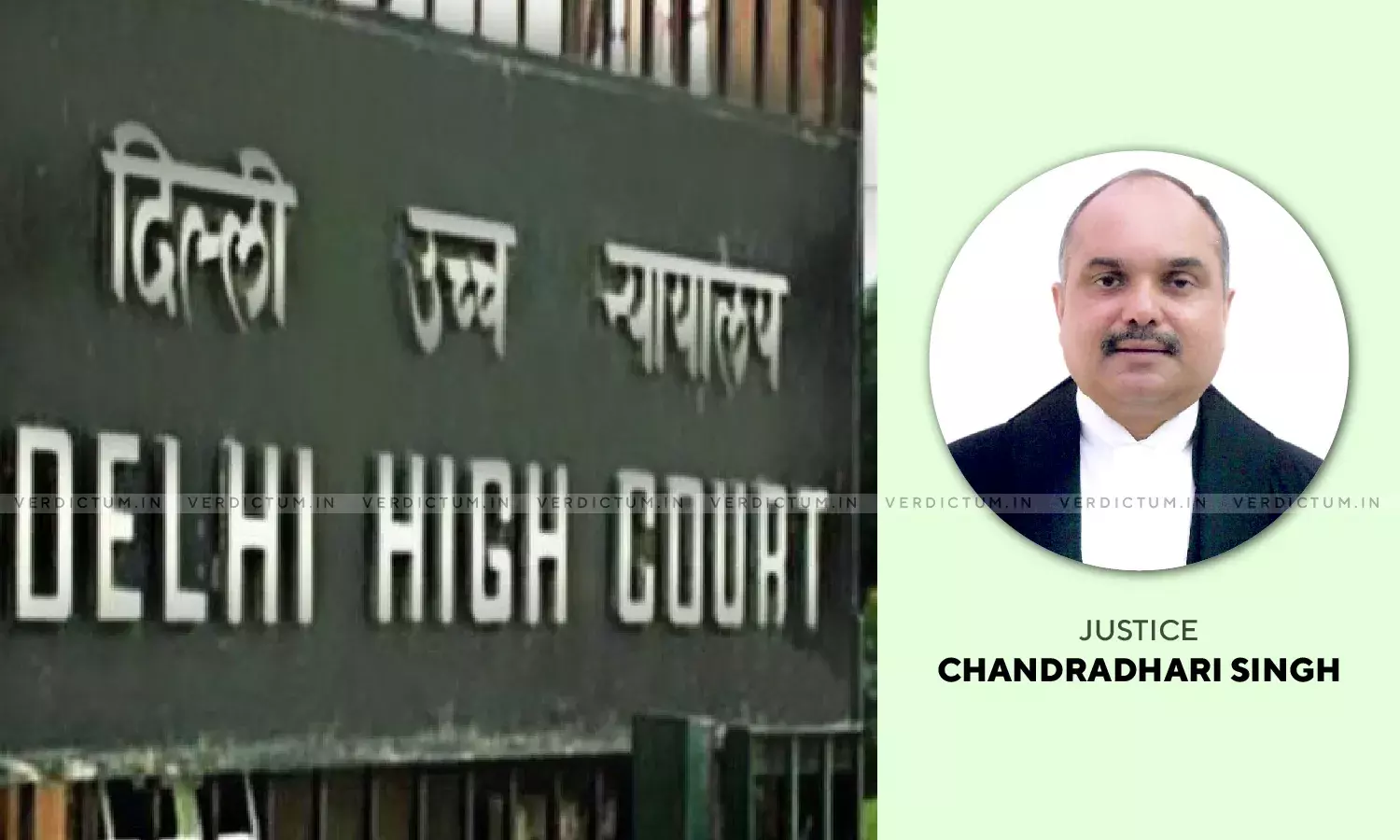Party Autonomy Plays A Crucial Role In Deciding Procedure Of An Arbitration Proceeding- Delhi High Court
The Delhi High Court reiterated the importance of different modes of Alternative Dispute Resolution (ADR) and observed that party autonomy plays a crucial role in deciding the procedure of an arbitration proceeding. Power, right, and entitlement are given to the parties involved in a dispute when it came to Alternate Dispute Resolution.
The Bench of Justice Chandra Dhari Singh observed that “it is essential that where the parties decide a course of action or procedure in arbitration proceedings, which is also supported by the governing entity, the said course of action or procedure is to given due recognition and observation. The Arbitrators shall not pass and issue any directions qua the fees that may be made binding on the parties when the same are in complete violation of the agreement between the parties as well as the specific and explicit directions of the Railway Board and RCF in their communications/notifications.”
Advocate Kanicka Miittal appeared for the petitioner and Advocate Rajan Sabharwal appeared for the respondent.
In this case, an agreement was executed between the petitioner and the respondent subject to the terms and conditions of the General Conditions of Contract, 1999 (GCC). Arbitration proceedings were initiated and an award was passed which was sealed, with the direction that both parties should pay the fees of the Arbitrators in accordance with Schedule IV of the Arbitration Act.
Aggrieved by the lien on Award by the Arbitral Tribunal, the petitioner had approached and has sought relief under Section 39(2) of the Arbitration Act, since the Arbitral Tribunal had not published the Award to date.
The issue before the Court was whether the Arbitral Tribunal was liable to publish the Award. To test the same it was pertinent to evaluate as to whether the parties were liable to deposit the costs and fees of the Arbitrators as fixed by the Arbitral Tribunal itself.
The Court noted that on perusal of records, it was evident from the records that the respondent was also in consensus with the averments made on behalf of the petitioner qua fixation of the fees of the Arbitrators in terms of the GCC and the communications of the Railway Board.
Further, the Court said that as per the order dated September 22, 2017, the parties were informed that the arbitration costs would be payable as per the Arbitration Act but there was no observation regarding the consensus of the parties while deciding the guiding provision nor any reference had been made in the order by the Arbitral Tribunal to any notification or even the appointment letter by the Railway Board or RCF.
The Court said that the Arbitrators were bound by the provisions under the GCC and as per the modified Clause 64 (6) it was evident that the Arbitrators were to be bound by the terms of the GCC while fixing the fees or making an observation regarding the intervening provisions deciding the rate of the fees.
"It is also significant to see that the GCC as well as the modifications in GCC were brought about much prior to the passing of the order dated 22nd September 2017, whereby the Arbitral Tribunal fixed the rate of the fees as per the Arbitration Act. Hence, there was no occasion for the Arbitrators to lay down another method for calculating the fees of the Tribunal or even refer to another piece of legislation for the purpose of fixing the amount of the fees to be deposited by the parties." observed the Court.
Therefore, the Court held that the Arbitral Tribunal was liable to publish the Award and said that "if the parties were entangled in the procedural formalities and technicalities, where the Arbitral Tribunal was attempting to impose its will and wishes without reason or cause, the entire spirit and purpose of the Act would be defeated."
Accordingly, the appeal was allowed.
Cause Title- M/s Ircon International Limited v. Union of India Railway Coach Factory (NEUTRAL CITATION NO. 2023/DHC/001373)
Click here to read/download the Judgment




